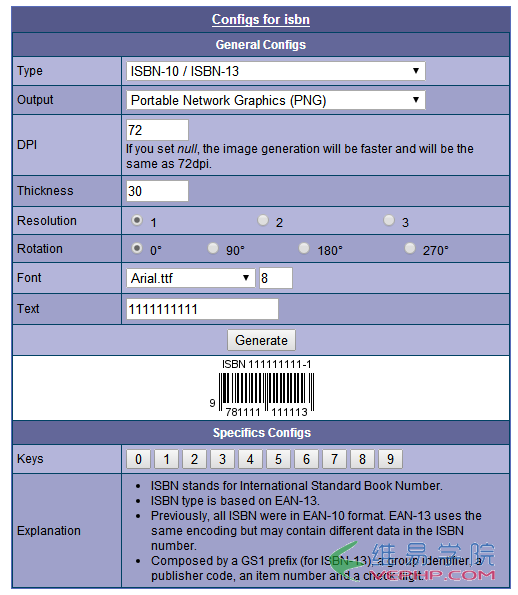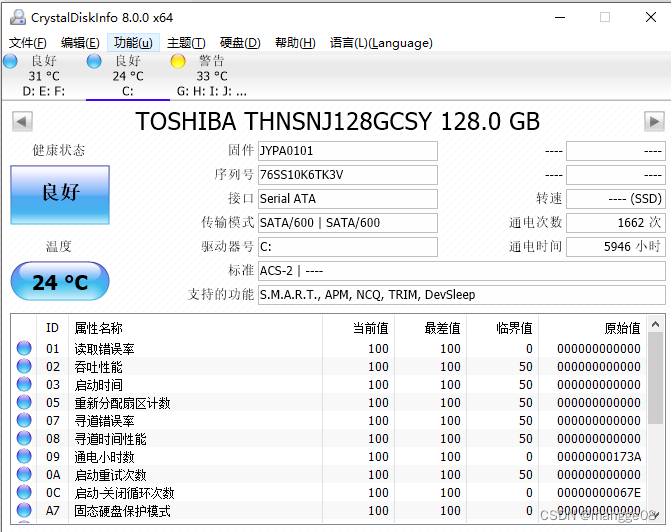实验6 JDBC进阶(3)
一、相关知识点
1、JDBC基本概念
2、批处理
3、DAO和OR映射
二、实验目的:
掌握批量SQL语句执行的方法,理解DAO和ORM的基本概念
三、实验内容:
- 利用批量SQL语句执行的方法实现实验5中的最后两个方法:
- 编写批量借阅读书函数: public void lendbooks(String readerId,Collection<String> barcodes) .... 。其中第二个参数为图书条码集合。
public void lendbooks(String readerId,Collection<String> barcodes) throws SQLException, BaseException {
SystemUserManager sum = new SystemUserManager();
BeanSystemUser admin = sum.loadUser("admin");
sum.currentUser = admin;
ArrayList<String> list = new ArrayList(barcodes);
Connection conn = null;
conn = DBUtil.getConnection();
String sql = "insert into BeanBookLendRecord(readerid,bookBarcode,lendDate,lendOperUserid,penalSum) values(?,?,?,?,0)";
java.sql.PreparedStatement pst = conn.prepareStatement(sql);
for(int i=0;i<list.size();i++) {
pst.setString(1, readerId);
pst.setString(2, list.get(i));
pst.setTimestamp(3, new java.sql.Timestamp(System.currentTimeMillis()));
pst.setString(4, SystemUserManager.currentUser.getUserid());
pst.addBatch();
}
pst.executeBatch();
String sql2 ="update BeanBook set state='已借出' where barcode=?";
java.sql.PreparedStatement pst2 = conn.prepareStatement(sql2);
for(int j=0;j<list.size();j++) {
pst2.setString(1, list.get(j));
pst2.addBatch();
}
pst2.executeBatch();
conn.close();
}
public static void main(String[] args) throws BaseException {
BookManager bm = new BookManager();
List<String> bc = new ArrayList<>();
bc.add("B123");
bc.add("B124");
try {
bm.lendbooks("r1", bc);
} catch (SQLException e) {
// TODO Auto-generated catch block
e.printStackTrace();
}
System.out.println("success");
System.out.println(bc.get(0));
System.out.println(bc.size());
}
B、编写批量设置罚金函数:public void setPenalSum(String readerId,Map<String,Double> penalSums) .... 。其中第二个参数的key为barcode,value为改读者尚未归还图书的罚金(注意,不要设置已经归还图书的罚金)。
public void setPenalSum(String readerId,Map<String,Double> penalSums){
Set<Map.Entry<String, Double>> es = penalSums.entrySet();
Connection conn = null;
try {
conn = DBUtil.getConnection();
String sql = "update beanbooklendrecord set penalSum = ? where readerid = ? and bookbarcode = ?";
PreparedStatement ps = conn.prepareStatement(sql);
for(Map.Entry<String, Double> entry:es) {
String key = entry.getKey();
Double value = entry.getValue();
ps.setDouble(1, value);
ps.setString(2, readerId);
ps.setString(3, key);
ps.addBatch();
}
ps.executeBatch();
}
catch (SQLException e) {
throw new RuntimeException(e);
}finally {
if(conn!=null) {
try {
conn.close();
} catch (SQLException e) {
throw new RuntimeException(e);
}
}
}
}
public static void main(String[] args) throws BaseException {
BookManager bm = new BookManager();
Map<String,Double> hm = new HashMap<>();
hm.put("B123", 10.0);
hm.put("B124",11.0);
bm.setPenalSum("r1", hm);
System.out.println("success");
}
- 模仿SystemUserDAO类,实现BookDAO类,并改造BookManager类,使之通过BookDAO操作数据库。
【实验结果与分析】
- 给出BookDAO类代码。
package cn.edu.zucc.booklib.control;
import cn.edu.zucc.booklib.model.BeanBook;
import cn.edu.zucc.booklib.model.BeanReader;
import cn.edu.zucc.booklib.model.BeanSystemUser;
import cn.edu.zucc.booklib.util.BaseException;
import cn.edu.zucc.booklib.util.BusinessException;
import cn.edu.zucc.booklib.util.DBUtil;
import cn.edu.zucc.booklib.util.DbException;
import java.sql.Connection;
import java.sql.PreparedStatement;
import java.sql.SQLException;
import java.util.ArrayList;
import java.util.Collection;
import java.util.HashMap;
import java.util.List;
import java.util.Map;
import java.util.Map.Entry;
import java.util.Set;
public class BookDAO {
public List<BeanBook> searchBook(Connection conn,String keyword, String bookState) throws BaseException {
List<BeanBook> result = new ArrayList<BeanBook>();
java.sql.PreparedStatement pst =null;
java.sql.ResultSet rs = null;
try {
String sql = "select b.barcode,b.bookname,b.pubid,b.price,b.state,p.publishername " +
" from beanbook b left outer join beanpublisher p on (b.pubid=p.pubid)" +
" where b.state='" + bookState + "' ";
if (keyword != null && !"".equals(keyword))
sql += " and (b.bookname like ? or b.barcode like ?)";
sql += " order by b.barcode";
pst = conn.prepareStatement(sql);
if (keyword != null && !"".equals(keyword)) {
pst.setString(1, "%" + keyword + "%");
pst.setString(2, "%" + keyword + "%");
}
rs = pst.executeQuery();
while (rs.next()) {
BeanBook b = new BeanBook();
b.setBarcode(rs.getString(1));
b.setBookname(rs.getString(2));
b.setPubid(rs.getString(3));
b.setPrice(rs.getDouble(4));
b.setState(rs.getString(5));
b.setPubName(rs.getString(6));
result.add(b);
}
} catch (SQLException e) {
e.printStackTrace();
throw new DbException(e);
}
finally{
if(rs!=null) {
try {
rs.close();
} catch (SQLException e) {
}
}
if(pst!=null) {
try {
pst.close();
} catch (SQLException e) {
}
}
}
return result;
}
public void createBook(Connection conn,BeanBook b) throws BaseException {
java.sql.PreparedStatement pst = null;
java.sql.ResultSet rs = null;
try {
String sql = "select * from BeanBook where barcode=?";
pst = conn.prepareStatement(sql);
pst.setString(1, b.getBarcode());
rs = pst.executeQuery();
rs.close();
pst.close();
sql = "insert into BeanBook(barcode,bookname,pubid,price,state) values(?,?,?,?,'在库')";
pst = conn.prepareStatement(sql);
pst.setString(1, b.getBarcode());
pst.setString(2, b.getBookname());
pst.setString(3, b.getPubid());
pst.setDouble(4, b.getPrice());
pst.execute();
}catch (SQLException e) {
e.printStackTrace();
throw new DbException(e);
}
finally{
if(rs!=null) {
try {
rs.close();
} catch (SQLException e) {
}
}
if(pst!=null) {
try {
pst.close();
} catch (SQLException e) {
}
}
}
}
public void modifyBook(Connection conn,BeanBook b) throws BaseException {
java.sql.PreparedStatement pst = null;
java.sql.ResultSet rs = null;
try {
String sql = "select * from BeanBook where barcode=?";
pst = conn.prepareStatement(sql);
pst.setString(1, b.getBarcode());
java.sql.ResultSet rs = pst.executeQuery();
rs.close();
pst.close();
sql = "update BeanBook set bookname=?,pubid=?,price=?,state=? where barcode=?";
pst = conn.prepareStatement(sql);
pst.setString(1, b.getBookname());
pst.setString(2, b.getPubid());
pst.setDouble(3, b.getPrice());
pst.setString(4, b.getState());
pst.setString(5, b.getBarcode());
pst.execute();
}catch (SQLException e) {
e.printStackTrace();
throw new DbException(e);
}
finally{
if(rs!=null) {
try {
rs.close();
} catch (SQLException e) {
}
}
if(pst!=null) {
try {
pst.close();
} catch (SQLException e) {
}
}
}
}
public BeanBook loadBook(Connection conn,String barcode) throws DbException {
java.sql.PreparedStatement pst = null;
java.sql.ResultSet rs = null;
try {
String sql = "select b.barcode,b.bookname,b.pubid,b.price,b.state,p.publishername " +
" from beanbook b left outer join beanpublisher p on (b.pubid=p.pubid)" +
" where b.barcode=? ";
pst = conn.prepareStatement(sql);
pst.setString(1, barcode);
rs = pst.executeQuery();
if (rs.next()) {
BeanBook b = new BeanBook();
b.setBarcode(rs.getString(1));
b.setBookname(rs.getString(2));
b.setPubid(rs.getString(3));
b.setPrice(rs.getDouble(4));
b.setState(rs.getString(5));
b.setPubName(rs.getString(6));
return b;
}
}catch (SQLException e) {
e.printStackTrace();
throw new DbException(e);
}
finally{
if(rs!=null) {
try {
rs.close();
} catch (SQLException e) {
}
}
if(pst!=null) {
try {
pst.close();
} catch (SQLException e) {
}
}
}
return null;
}
}
- 给出改造后BookManager类的各个方法的代码。
package cn.edu.zucc.booklib.control;
import cn.edu.zucc.booklib.model.BeanBook;
import cn.edu.zucc.booklib.model.BeanReader;
import cn.edu.zucc.booklib.model.BeanSystemUser;
import cn.edu.zucc.booklib.util.BaseException;
import cn.edu.zucc.booklib.util.BusinessException;
import cn.edu.zucc.booklib.util.DBUtil;
import cn.edu.zucc.booklib.util.DbException;
import cn.edu.zucc.booklib.dao.BookDAO;
import java.sql.Connection;
import java.sql.PreparedStatement;
import java.sql.SQLException;
import java.util.ArrayList;
import java.util.Collection;
import java.util.HashMap;
import java.util.List;
import java.util.Map;
import java.util.Map.Entry;
import java.util.Set;
public class BookManager {
private BookDAO dao = new BookDAO();
public List<BeanBook> searchBook(String keyword, String bookState) throws BaseException {
Connection conn = null;
try {
conn = DBUtil.getConnection();
return dao.searchBook(conn, keyword, bookState);
} catch (SQLException e) {
e.printStackTrace();
throw new DbException(e);
} finally {
if (conn != null)
try {
conn.close();
} catch (SQLException e) {
// TODO Auto-generated catch block
e.printStackTrace();
}
}
}
public void createBook(BeanBook b) throws BaseException {
if (b.getBarcode() == null || "".equals(b.getBarcode()) || b.getBarcode().length() > 20) {
throw new BusinessException("条码必须是1-20个字");
}
if (b.getBookname() == null || "".equals(b.getBookname()) || b.getBookname().length() > 50) {
throw new BusinessException("图书名称必须是1-50个字");
}
Connection conn = null;
try {
conn = DBUtil.getConnection();
String sql = "select * from BeanBook where barcode=?";
java.sql.PreparedStatement pst = conn.prepareStatement(sql);
pst.setString(1, b.getBarcode());
java.sql.ResultSet rs = pst.executeQuery();
if (rs.next()) throw new BusinessException("条码已经被占用");
pst.close();
rs.close();
dao.createBook(conn, b);
} catch (SQLException e) {
e.printStackTrace();
throw new DbException(e);
} finally {
if (conn != null)
try {
conn.close();
} catch (SQLException e) {
// TODO Auto-generated catch block
e.printStackTrace();
}
}
}
public void modifyBook(BeanBook b) throws BaseException {
if (b.getBookname() == null || "".equals(b.getBookname()) || b.getBookname().length() > 50) {
throw new BusinessException("图书名称必须是1-50个字");
}
Connection conn = null;
try {
conn = DBUtil.getConnection();
String sql = "select * from BeanBook where barcode=?";
java.sql.PreparedStatement pst = conn.prepareStatement(sql);
pst.setString(1, b.getBarcode());
java.sql.ResultSet rs = pst.executeQuery();
if (!rs.next()) throw new BusinessException("图书不存在");
rs.close();
pst.close();
dao.modifyBook(conn, b);
} catch (SQLException e) {
e.printStackTrace();
throw new DbException(e);
} finally {
if (conn != null)
try {
conn.close();
} catch (SQLException e) {
// TODO Auto-generated catch block
e.printStackTrace();
}
}
}
public BeanBook loadBook(String barcode) throws DbException {
Connection conn = null;
try {
conn = DBUtil.getConnection();
return dao.loadBook(conn, barcode);
} catch (SQLException e) {
e.printStackTrace();
throw new DbException(e);
} finally {
if (conn != null)
try {
conn.close();
} catch (SQLException e) {
// TODO Auto-generated catch block
e.printStackTrace();
}
}
}
}
- 在BaseDAO中,增加方法,实现根据主码提取对象的方法load。
【实验结果与分析】
- 写出函数代码。
public BeanBook load(Connection conn,String barcode) {
java.sql.PreparedStatement pst = null;
java.sql.ResultSet rs = null;
try {
String sql = "select * from beanbook where barcode = ?";
pst = conn.prepareStatement(sql);
pst.setString(1, barcode);
rs = pst.executeQuery();
if (rs.next()) {
BeanBook b = new BeanBook();
b.setBarcode(rs.getString(1));
b.setBookname(rs.getString(2));
b.setPubid(rs.getString(3));
b.setPrice(rs.getDouble(4));
b.setState(rs.getString(5));
b.setPubName(rs.getString(6));
return b;
}
}catch (SQLException e) {
e.printStackTrace();
throw new DbException(e);
}
finally{
if(rs!=null) {
try {
rs.close();
} catch (SQLException e) {
}
}
if(pst!=null) {
try {
pst.close();
} catch (SQLException e) {
}
}
}
return null;
}




